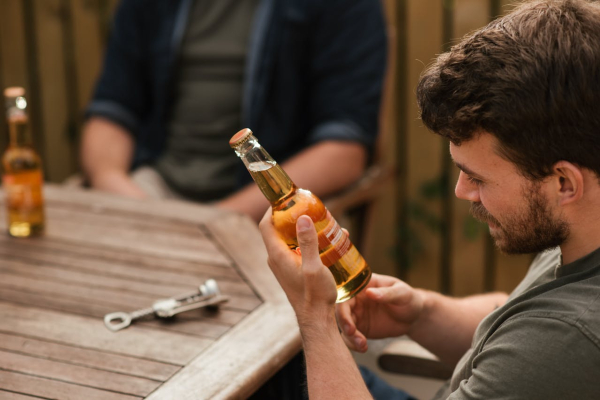What is a High BAC for a DUI in South Carolina?

BAC stands for “blood alcohol content,” which is basically a measure of how much alcohol is flowing through your veins after you’ve been drinking. In South Carolina, if your BAC is 0.08% or higher, you can be charged with a DUI.
But here’s the thing – the higher your BAC, the more serious the consequences can be. So, what exactly is considered a high BAC, and how can it affect your case?
South Carolina’s Legal BAC Limit
The legal BAC limit for drivers 21 years and older in South Carolina is 0.08%.
This rule means that if a driver’s BAC is at or above 0.08%, the police can charge that individual with a DUI. The state has a zero-tolerance law for drivers under 21 years old, setting the legal limit at 0.02%.
It’s important to note that even if a driver’s BAC is below the legal limit, the state can still charge the motorist with a DUI if alcohol impairs his or her driving.
South Carolina also has enhanced penalties for drivers with high BAC levels, defined as 0.10% and above.
These heightened consequences underscore the severity of driving with a high BAC.
High BAC DUI Penalties in South Carolina
According to S.C. Code § 56-5-2933, BAC DUI penalties in South Carolina are severe after a first offense and escalate from there.
First Offense (Misdemeanor)
- BAC <.10: $400 fine OR 2 to 30 days in jail AND a six-month driver’s license suspension.
- BAC .10 – .16: $500 fine OR 3 to 30 days in jail AND a six-month driver’s license suspension.
- BAC >.16: $1,000 fine OR 30 to 90 days in jail AND a six-month driver’s license suspension.
Second Offense (Misdemeanor)
- BAC <.10: $2,100 to $5,100 fine AND 5 days to 1 year in jail, AND 1-year driver’s license suspension.
- BAC .10 – .16: $2,500 to $5,500 fine AND 30 days to 2 years in jail, AND 1-year driver’s license suspension.
- BAC >.16: $3,500 to $6,500 fine AND 90 days to 3 years in jail, AND 1-year driver’s license suspension.
Third Offense (Misdemeanor)
- BAC <.10: $3,800 to $6,300 fine AND 60 days to 3 years in jail, AND 2-year driver’s license suspension.
- BAC .10 – .16: $5,000 to $7,500 fine AND 90 days to 4 years in jail, AND 2-year driver’s license suspension.
- BAC >.16: $7,500 to $10,000 fine AND 180 days to 5 years in jail, AND 2-year driver’s license suspension.
Fourth Offense (Felony)
- BAC <.10: 1 to 5 years in jail, AND permanent license revocation.
- BAC .10 – .16: 2 to 6 years in jail, AND permanent license revocation.
- BAC >.16: 3 to 7 years in jail, AND permanent license revocation.
DUI incidents of any BAC resulting in significant bodily injury or death also lead to felony DUI charges.
Implied Consent and BAC Testing in South Carolina
South Carolina has an implied consent law, meaning that by operating a vehicle in the state, drivers automatically consent to BAC testing if requested by law enforcement.
Refusing a BAC test can result in a six-month license suspension, which is separate from any penalties associated with a DUI conviction.
Law enforcement officers may administer various BAC tests, including breathalyzer, blood, and urine tests.
Consult with a South Carolina criminal defense attorney to better understand your BAC testing rights and the potential consequences of refusing a BAC test.
Field Sobriety Tests in High BAC DUI Cases
In addition to BAC tests, South Carolina law enforcement officers may also use field sobriety tests (FSTs) to determine a driver’s alcohol impairment.
These tests include the horizontal gaze nystagmus (HGN), walk-and-turn, and one-leg stand tests, designed to assess a driver’s balance, coordination, and ability to follow instructions.
Unreliable Indicators
While FSTs can provide evidence of impairment, they are sometimes unreliable indicators of a driver’s BAC level. Factors such as medical conditions, physical limitations, and environmental conditions can impact a person’s performance on these tests.
Criminal Defense Attorneys Can Help
If you’ve been arrested for a high BAC DUI in South Carolina and believe that law enforcement administered your FST improperly or that your performance was affected by external factors, consult our DUI defense attorneys at Okoye Law.
We will review the evidence and determine if challenging the FST results is a viable defense strategy in your case.
Challenging High BAC Test Results
Sometimes, you can challenge high BAC test results in court based on potential testing equipment or procedures issues.
Additionally, certain medical conditions, such as acid reflux or diabetes, can affect BAC readings.
Another possible defense includes “the rising BAC argument,” asserting that the driver’s BAC was below the legal limit while driving but continued to rise between the time of the stop and the administration of the BAC test.
Don’t Let a High BAC DUI Derail Your Life
The dangers and consequences of driving with a high BAC in South Carolina are severe. Not only do you risk your safety and the safety of others on the road, but you also face legal penalties that can impact your life for years to come.
Our DUI defense attorneys at Okoye Law offer confidential consultations to discuss your case and explore your legal options.
Contact our criminal defense law firm today.



